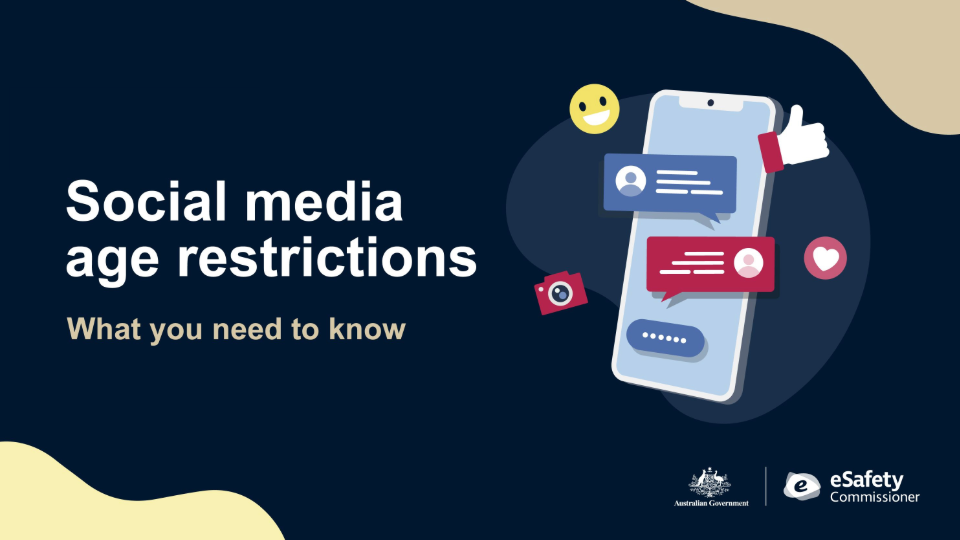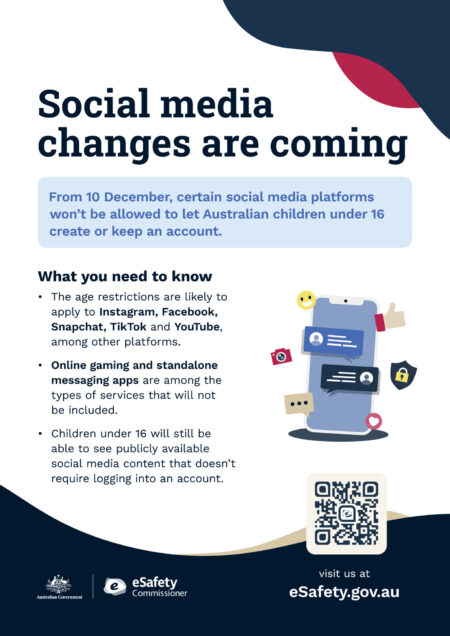
How Can I Prepare My Child or Teen for the Social Media Ban in December?
We know that uncertainty around change can be unsettling. As parents and educators, we can do much more than simply sit and wait to see what the impending Social Media Bans for under-16s will look like when it takes effect on December 10.
For some families, the change will feel like a welcome relief. For those with younger children, it provides an opportunity to feel more confident about delaying access to social media platforms and exposure to harmful content and screen overuse.
However, for others, particularly families with mid-teens already highly reliant on social media for entertainment and socialising, it may feel more daunting – almost as though the horse has already bolted.
Regardless of personal views, the fact remains that families and schools will have a task ahead of them in both navigating how our children will adapt to this legislation, as well as helping them navigate their responses to it.
For many children and teens, the changes may mean very little. However, for others – especially teens – it may bring feelings of resistance, loss, and even grief. For some, social media is a primary source of connection and communication, and a space where they feel most comfortable.
It’s important that parents and carers support their under-16s by talking openly about the age restrictions, understanding how they currently use social media, and exploring how the new legislation may affect them.
I raise this now, a few months ahead of the December deadline, as an opportunity to gently begin discussing and planning with your children. Conversations might include their understanding of the new legislation, how they use social media day-to-day, and what concerns or questions they may have about the impact of the changes.
Some Discussion Tips:
- Lead with empathy and understanding. Validate their feelings and reassure them that they can adapt to these changes with your support.
- Ask your child how they currently use social media, and how long they spend on it.
- If your teen relies on social media for connection, acknowledge the sense of loss or anxiety they may feel. Balance this by highlighting hopeful alternatives and discussing other ways they can connect with peers.
- Talk about the new legislation and what it means – The eSafety Commissioner’s website offers helpful FAQs: Social media ‘ban’ or delay FAQ | eSafety Commissioner
- Explain that the restrictions are protections – not punishments. Reassure them they can always come to you or a trusted adult to talk about their concerns.
- Help them understand the reasons behind the changes to this legislation. Discuss the harms the law aims to address – such as over-use and exposure to harmful content that can impact their sleep, stress levels, attention and wellbeing.
Practical Strategies:
- Identify alternative social outlets that involve real-world, face-to-face interactions that they could invest in – increasing playdates, joining groups, part-time work, volunteering etc.
- Acknowledge their fears and worries, while also exploring the potential positives for them and society more broadly.
- Predict challenging times of day and brainstorm healthier alternatives. For example, if your teen usually lies on the couch after school and scrolls endlessly, suggest alternatives such as going to the gym on the way home, kicking a ball outside with family or a friend, finishing homework in a nearby library, or starting a new hobby.
- If it is not part of your family routine, re-establish a dinner time routine with all family members at the dinner table, which is a phone-free zone.
- Encourage outdoor activities like sport, running, walking, a trip to the park, bike riding, or art.
- Invite your child/teen to engage in offline activities such as board games, card games, or playing a musical instrument.
- Promote ‘joining in’ the community – whether through co-curricular school groups, local clubs, or volunteering opportunities. Helping others not only builds social circles but also improves mood and self-esteem.
- Be aware that some young people may try to subvert or circumvent the legislation. Adolescents can be resourceful, so these conversations are also a chance to encourage honesty and build trust.
Supporting Vulnerable Youth
There will be a group of young people who will require more considered support. We know that some young people have developed addictive behaviours to social media apps and could benefit from gradually reducing their access in the lead-up to the December 10 ban. Sue Larkey, an advocate for neurodiversity, winner of the 2013 Naturally Autistic International Award for Community Contribution, and author of numerous books on Autism, suggests that careful planning before December 10 will help neurodiverse youth navigate this change. She recommends using this opportunity to openly discuss which platforms they use, how much time they currently spent on each (use built-in- screen-time-tools), and what function these platforms serve – for example, social connection, entertainment, routine and predictability, self-regulation, or distraction from overwhelm. By doing so, you will be in a stronger position to help your child find alternative activities that meet the same needs currently fulfilled by social media.
Closing Thoughts
No doubt there will be teething issues with the legislation. For many, social media is a form of communication and a way to pass the time. For others it has become an entrenched habit akin to an addiction even. But by encouraging and building alternatives now, we can help smooth the transition in December. Understanding your child’s online habits – including how many hours they spend on social media – offers invaluable insight into how significant this change might be for your child.
Remember – the goal of delaying account access until 16 is to give young people more time to develop important skills and maturity before facing the risks of age-restricted social media.
Helpful Resources
- The social media ban: a guide for young people – Headspace guide to how to negotiate the social media ban.
- Social media ‘ban’ or delay FAQ | eSafety Commissioner – From the E-Safety Commission – A break-down of the social media ban – who’s affected, when it will happen and how it will work.
- You can watch a short video here from ESafety website about the social media ban and how to talk about it with our kids.

Philippa Gibson
SCEGGS School Counsellor


